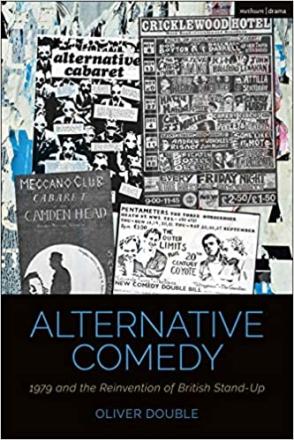
Comedy academics have sent an open letter to Culture Minister Oliver Dowden arguing that comedy is an art form and should be entitled to any government bail-outs.
Read the letter in full below.
Is stand-up comedy art?
Yes, and it should be recognised as such. Comedians write their own material, satirise society, imagine alternative realities, and fill the stage with imaginary characters. They improvise, respond to heckles, and edit their material according to the audience’s responses. Crucially, they provoke laughter throughout their time onstage. It is difficult to think of a way of defining art that would exclude comedy – a form that demands such high levels of creative skill in terms of both writing and performance.
The question of whether comedy is art has now become absolutely crucial. The COVID-19 lockdown poses an existential threat to live comedy in the UK. Because live comedy shows cannot take place, almost 78% of comedy venues face closure and 60% of comedians, promoters, venue owners, programmers, and all the others involved are on the point of leaving their profession.
The fear is that none of the £1.57 billion pledged by the government to support Britain’s arts and heritage sectors will be allocated to saving live comedy, not least because comedy has received practically no public funding in the past. This appears to hinge on the question of definition. If comedy is not seen as art, perhaps it will not be seen as worthy of public funding? This has certainly been the case with previous attempts to secure Arts Council funding for comedy.
This is not just a question of semantics, but of survival. We call on you to recognise comedy as art, equal in artistic value to the other performing arts, and to assure us that it will be eligible for some of the £1.57 billion in order to secure its future. The alternative is to risk losing a creative and popular art form that provides employment for thousands and under normal circumstances generates an estimated £500 million per year.
Yours sincerely,
Performance & Theatre Research Group, University of Kent
Aesthetics Research Centre, University of Kent
British Society of Aesthetics
Comedy Studies journal
Oliver Double, University of Kent (author Stand-Up! On Being a Comedian; Getting the Joke; Alternative Comedy)
Dieter Declercq, University of Kent (author ‘The philosophical and ethical significance of humour. The Simpsons as humorous ethical truth-telling’)
Shaun May, University of Kent (author A Philosophy of Comedy on Stage and Screen)
Sophie Quirk, University of Kent (author Why Stand-Up Matters; The Politics of British Stand-Up Comedy)
Jayne Thompson, University of Kent (Head of Drama)
Sharon Lockyer, Brunel University London (author ‘Performance, Expectation, Interaction, and Intimacy: On the Opportunities and Limitations of Arena Stand-up Comedy for Comedians and Audiences’, co-editor Beyond a Joke: The Limits of Humour)
Dimitrinka Stoyanova Russell, Cardiff Business School (co-author, ‘No funny business: precarious work and emotional labour in stand-up comedy’)
Ian Wilkie, University of Salford (author Performing in Comedy)
Oliver Double is also the author of Alternative Comedy: 1979 and the Reinvention of British Stand-Up (pictured). Read a review here.


